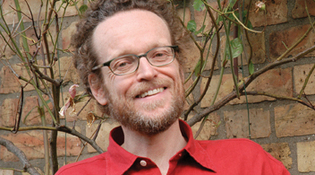 loading
loading
Light & VerityA philosopher with a plan Courtesy Thomas PoggePhilosophy professor Thomas Pogge wants to remake the system by which life-saving drugs are distributed. View full imageFifty thousand poor people die every day around the world from diseases that could have been prevented or treated but for lack of access to medications and health care. Epidemiologists, politicians, and economists are trying to fix this situation. But what you might not expect is that philosophers, too, have joined the fray. In a practical application of the philosophical concept of global justice, Leitner Professor of Philosophy and International Affairs Thomas Pogge wants to restructure the global scheme of medication distribution by applying a pay-for-performance method. “You find, all the time, statistics about how many people have been saved,” says Pogge of other remedies, like buying brand-name drugs for the poor. But many of those people, he says, suffered harm to their health in the first place because of the existing international systems for distributing drugs. “Saving [individuals] is not enough. We have to make a structural reform.” Designed to align patients’ and companies’ interests, Pogge’s proposed Health Impact Fund (HIF) sets up a situation similar to that of a lawyer who takes a case on contingency. A drug company can register a new medication with the HIF. Though it need not surrender its intellectual property rights, it must agree to sell the drug at cost throughout the world. Later, if the HIF detects an attributable health improvement among patients who took it, the company will receive a share of the fund proportionate to that improvement. More lives saved will mean more money earned—and in diseases of poverty, such as malaria, much more money than monopoly pricing, which puts drugs beyond the reach of poor customers. Pogge has presented the HIF idea to audiences like the World Economic Forum, the drug company Pfizer, and the United Nations Global Fund, as well as to governmental representatives of China, India, and the European Union. If he can persuade governments representing one-third of the global product to commit an annual 0.03 percent of gross national product, the fund will have about $6 billion—enough to begin rewarding the makers of several new drugs each year. The HIF has prominent supporters, among them Princeton ethicist Peter Singer and Harvard economist and Nobel laureate Amartya Sen. So far, Pogge has received grants from the government of Australia, the BUPA Foundation in the United Kingdom, and the European Union to develop his idea. Pogge has long argued that fairness transcends national boundaries. Though this idea has gained traction in recent years, it was long a lonely one for a philosopher to hold. When he wrote his dissertation on global justice in 1983, prevailing thought within philosophy focused on interactions between states, as in war; and within states, as among citizens of a country. “I thought that the way moral philosophy and political philosophy were done was quite inconsistent with basic intuitions,” Pogge says, “because the universalization always stopped at international borders. If we want to forget about whether we are male or female, bright or stupid, handsome or ugly, then why don't we also forget whether we are American or Cameroonian? But that idea did not fly with my thesis adviser at all.” It still doesn't fly among philosophers who maintain that what he is doing is not really philosophy. But the students who flock to his HIF meetings don't seem to agree. Pogge says the study of global justice is now probably the fastest-growing area of philosophy. “I think it's clear that it's here to stay within academia.” He hopes that the world will find the HIF as indispensable.
The comment period has expired.
|
|